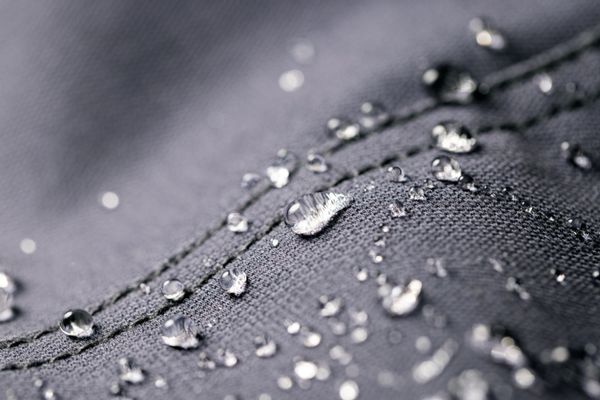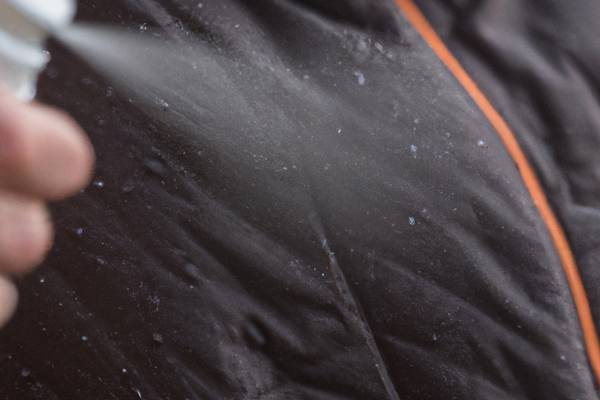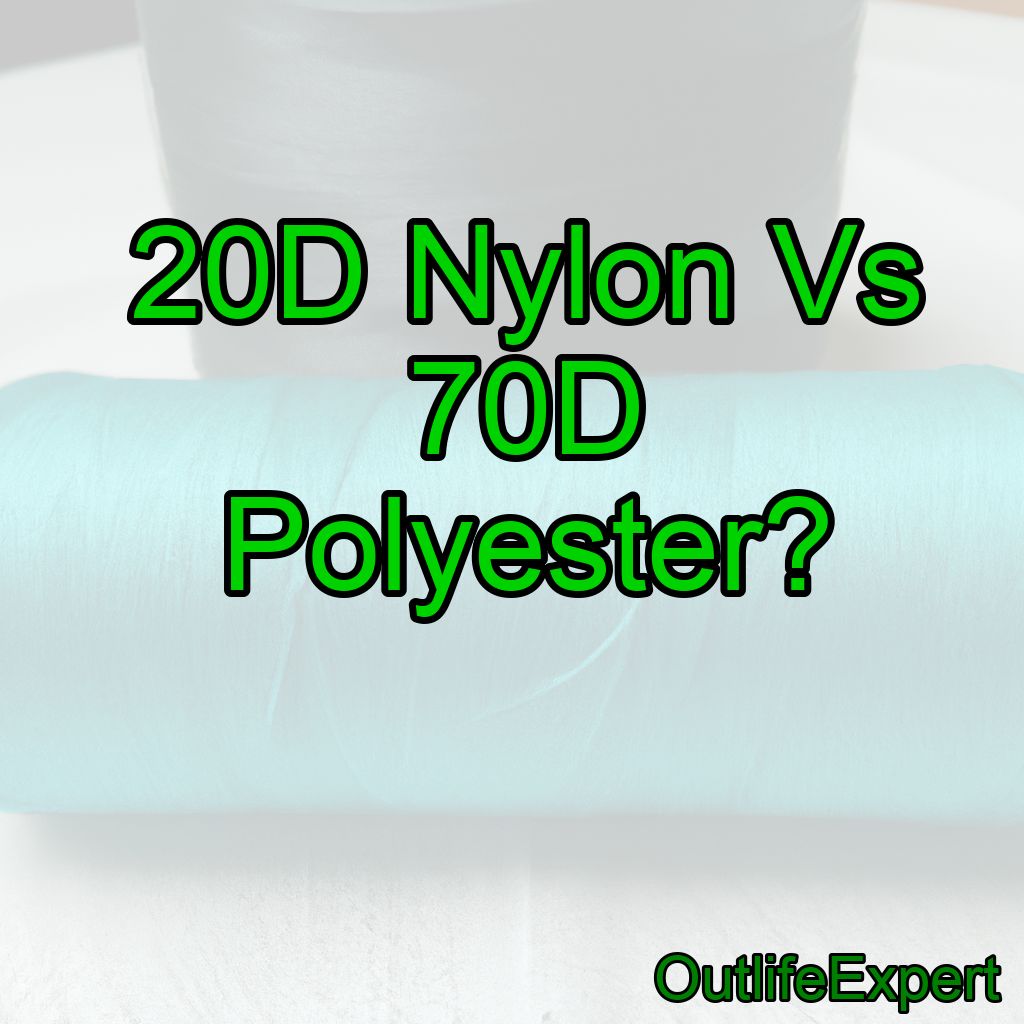If you’re looking for a versatile and lightweight jacket that can withstand the elements, you might be considering a nylon jacket. But the question on many people’s minds is: are nylon jackets waterproof?
The answer isn’t as straightforward as a simple yes or no. Nylon jackets are often marketed as water-resistant, which means they can repel light rain and moisture to some extent. However, this doesn’t necessarily mean they are completely waterproof.
Whether or not a nylon jacket is truly waterproof depends on several factors, including the type of coating or membrane it has, how well it’s constructed, and how long it’s exposed to water.
In this article, we’ll explore the different types of nylon jackets and what makes them more or less waterproof, so you can make an informed decision when choosing your next outerwear piece.
Contents
Characteristics Of Nylon
Nylon is a popular fabric choice for jackets due to its durability, breathability, and lightweight properties. This synthetic material is also known for being cost-effective, strong, light weight and versatile when it comes to style options.

While nylon offers a range of benefits, it’s important to consider whether it meets your specific needs in terms of waterproofing before making a purchase.
Another similar and equally popular option for jackets is polyester, which is also frequently used in rain gear.
With this in mind, let’s delve into the pros and cons of nylon jackets to help you make an informed decision.
Types Of Nylon Outerwear
When it comes to nylon outerwear, there are a variety of styles and fits available to suit any preference. From form-fitting jackets designed for athletic activities to looser, more relaxed styles for everyday wear, the range of options is endless.
Additionally, many manufacturers now offer eco-friendly materials, such as recycled nylon, which reduce the environmental impact of production.

Durability benefits are another hallmark of nylon outerwear. The material is resistant to tears and abrasions, making it an excellent choice for outdoor activities like hiking or camping.
Many jackets also feature washable fabrics that can be easily cleaned after a day spent in the great outdoors.
The breathability rating is yet another important factor to consider when selecting a nylon jacket. Depending on how much ventilation you need during physical activity, some jackets may be better suited than others.
While all of these aspects are important factors to consider when selecting a nylon jacket, determining water resistance is perhaps one of the most critical considerations.
Determining Jacket Water Resistance
If you’re in the market for a new jacket, it’s important to consider its water resistance level. While nylon jackets are often touted as being waterproof, this isn’t always the case.
Nylon is naturally water-resistant, but without proper water repellent treatments, it may not hold up in heavy rain or snow. Look for jackets that have been treated with DWR (durable water repellent) to ensure maximum weather protection.

Another factor to consider is moisture wicking and breathability rating. When you’re active outdoors, you want a jacket that can keep you dry from sweat as well as rain. Look for jackets with breathable membranes or synthetic insulation that can wick away moisture from your skin while still keeping you warm.
When shopping for your next jacket, keep in mind factors beyond just its appearance. Consider the level of weather protection it offers through water repellent treatments and breathability ratings. Synthetic insulation can also help keep you dry while remaining warm.
In the next section, we’ll discuss how to care for your newly purchased jacket to ensure its longevity and effectiveness against the elements.
Care And Maintenance
Taking care of your nylon jacket is essential to ensure it stays in good condition for years to come. The fabric properties of nylon make it water-resistant, but not entirely waterproof, so knowing how to maintain it is crucial.

To keep your jacket clean, wash it in cold water and use mild detergent. Avoid using fabric softeners or bleach as they can damage the nylon fibers.
After washing, hang the jacket up to dry and avoid putting it in the dryer. If you need to remove stains, use a cloth and spot treat the affected area before washing.
Storing your nylon jacket properly will also help prolong its lifespan. Make sure to hang it up in a cool, dry place with enough ventilation to prevent any mold or mildew buildup.
If you need to pack it away for a season, fold your jacket neatly and store it in a breathable bag or container.
Layering options are also important when wearing a nylon jacket for weather protection. Nylon jackets are great for light rain or windy days, but may not be suitable for heavy rain or snow without additional layers underneath.
Consider wearing thermal layers or heavier fabrics on colder days for added warmth and protection.
By following these simple cleaning and storing tips, you can ensure your nylon jacket continues to provide weather protection and comfort whenever you wear it.
Pros And Cons Of Nylon Jackets
Delving deeper into the world of nylon, we now examine the pros and cons of nylon jackets. This will enable us to gauge their effectiveness in various situations and weigh them against other available options.
Pros:
- Lightweight: Nylon is a very light material, which makes it an ideal choice for jackets. This makes nylon jackets easy to wear and carry around.
- Durable: Nylon is a very strong and durable material, making nylon jackets long-lasting and resistant to wear and tear.
- Affordable: Nylon is an affordable material, making nylon jackets an excellent choice for those on a budget.
- Water-resistant: Nylon is a water-resistant material, which means that it can protect you from light rain and snow.
- Easy to clean: Nylon jackets are easy to clean and maintain, as they can be machine washed and dried.
Cons:
- Lack of breathability: Nylon jackets are not very breathable, which means that they can trap heat and sweat.
- Not very warm: Nylon is not a very warm material, which means that nylon jackets may not provide enough insulation in very cold weather.
- Not environmentally friendly: Nylon is a synthetic material that is not biodegradable and can take hundreds of years to decompose.
- Prone to static: Nylon can generate static electricity, which can be uncomfortable and cause clothing to stick to the skin.
- May not be very fashionable: Nylon jackets are often associated with sportswear and outdoor activities, which may not be appropriate for all occasions or personal styles.
Nylon jackets are known for their stylishness, often featuring sleek designs that can be worn in various settings. They offer a degree of breathability and comfort, making them suitable for mild weather conditions.
Additionally, they are praised for their durability, as nylon is known to be a strong material that can withstand wear and tear. Lastly, nylon jackets tend to be cost-effective compared to other materials like leather or down, making them an attractive option for budget-conscious shoppers.
However, stay tuned as we explore alternatives to nylon jackets in our next discussion.
Alternatives To Nylon Rain Jackets
If you’re on the lookout for a jacket that’s more suitable for wet conditions, there are plenty of alternatives to nylon jackets. A thick polyester jacket can be one option, but polyester is also not fully waterproof on its own.
Breathable fabrics, such as Gore-Tex or eVent, feature rubberized coatings that ensure maximum waterproofness while still allowing perspiration to escape.
Down insulation is another option for keeping warm in cold, damp weather; it provides excellent warmth-to-weight ratio and can be combined with waterproof outer materials.
For those seeking an eco-friendly alternative, synthetic fibers like PrimaLoft or Thinsulate can offer similar levels of warmth and water resistance as down insulation.
Jackets with fleece liners can also be a great choice, as they provide additional warmth and comfort without compromising on protection against the elements.
Conclusion
Overall, Nylon jackets can offer varying levels of water resistance depending on the type of nylon used and the construction of the jacket.
However, it’s essential to remember that nylon jackets aren’t entirely waterproof. They can handle light rain or occasional splashes but might not hold up well in heavy downpours or prolonged exposure to water. If you’re seeking complete protection from the elements, consider investing in a fully waterproof jacket made from materials like Gore-Tex or eVent.
It is important to understand the specific features of your nylon jacket in order to determine its water resistance capabilities.
When shopping for a nylon jacket, it is important to look for key features such as a waterproof coating or sealed seams. These details can make all the difference when it comes to keeping you dry during inclement weather.
Additionally, proper care and maintenance can also greatly impact a nylon jacket’s water resistance over time.
In conclusion, while not all nylon jackets are created equal in terms of water resistance, there are certainly options available that will keep you protected from rain and other forms of moisture.
By understanding the unique qualities of your outerwear and taking care to maintain it properly, you can ensure that your nylon jacket remains an effective barrier against wet weather conditions.





